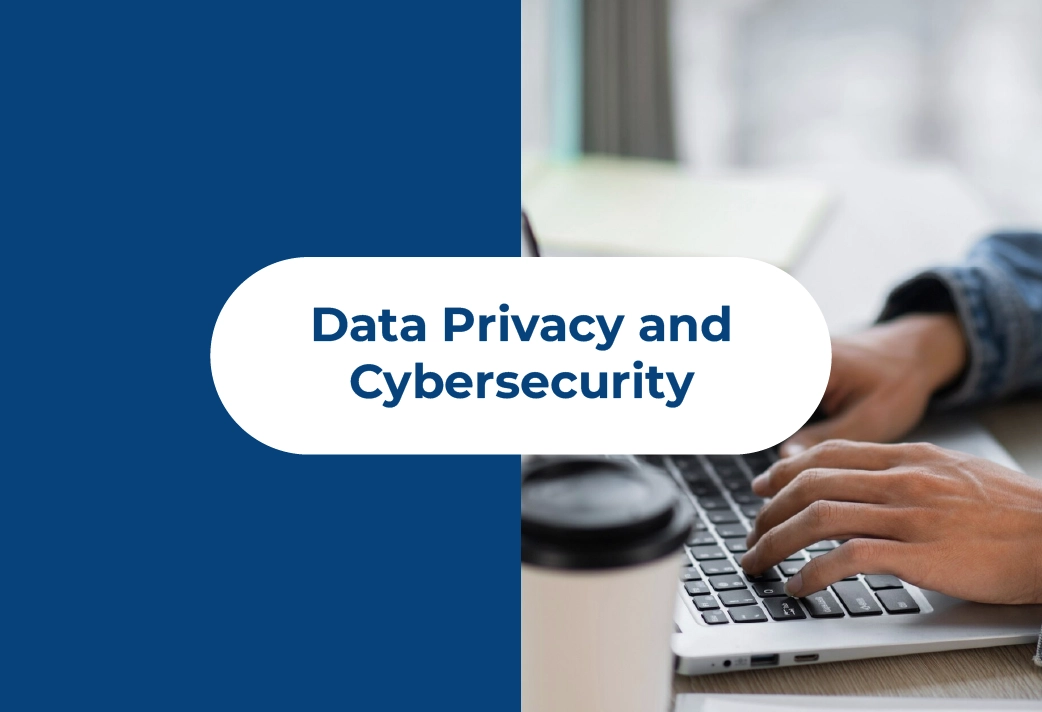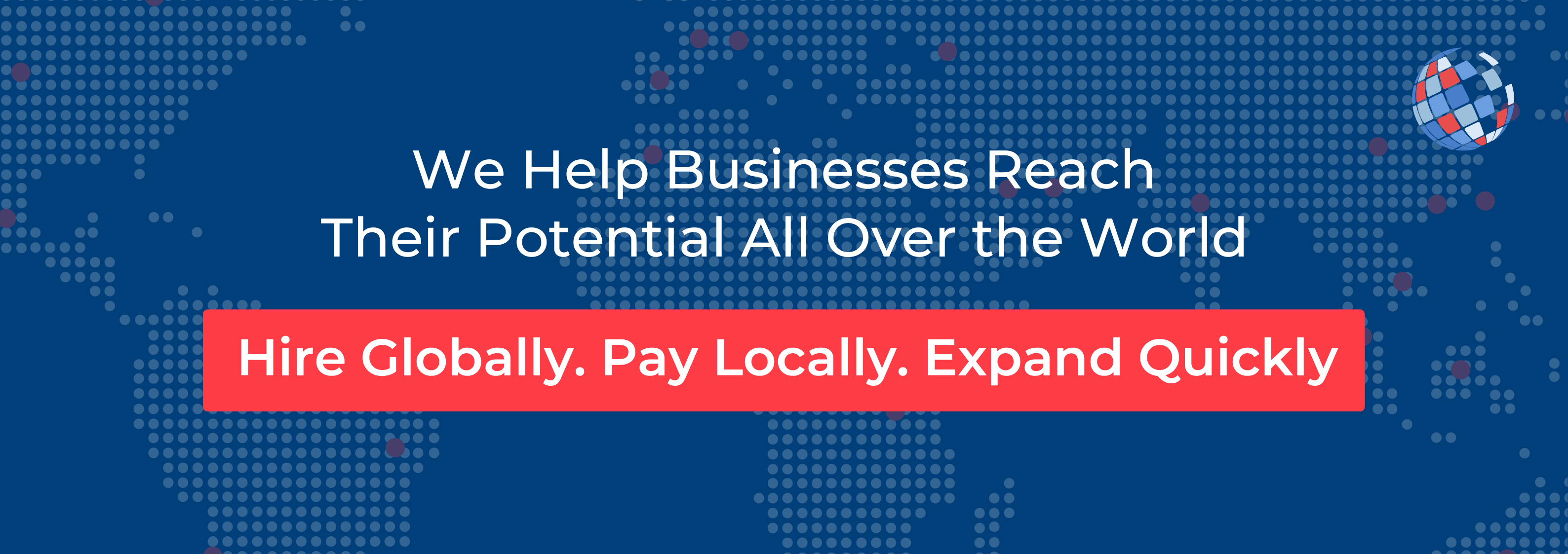As remote and hybrid work models become normalized in large and small companies around the world, remote team managers must prioritize data privacy and cybersecurity to continually protect sensitive information. Regulations such as the General Data Protection Regulation (GDPR) in Europe and the California Consumer Privacy Act (CCPA) in the United States impose strict compliance requirements on organizations that handle personal data, entailing more and more work for those working across multiple jurisdictions. Failure to comply can result in heavy fines, reputational damage, and legal action.
To effectively manage cybersecurity risks in an increasingly digital world, companies must implement strong policies, invest in secure technologies, and educate employees on best practices. INS Global can provide expert guidance to help ensure businesses remain compliant and protected throughout these changes.

Tired of scrolling? Download a PDF version for easier offline reading and sharing with coworkers
The Growing Importance of Data Privacy Regulations
Understanding GDPR, CCPA, and Other Global Laws
With the increasing adoption of digital services and cloud-based operations which operate on a global scale, governments around the world are strengthening their data protection policies. Countries like Japan, South Korea, and India, which already have some measures in place, are rolling out stricter privacy regulations, making compliance a complex but essential part of business operations. These regulations aim to hold organizations accountable for the ethical use of data while safeguarding consumers from potential data misuse.
As a result, companies doing any kind of business in the digital world must now comply with a range of laws affecting their operations in a multitude of jurisdictions.
The Expansion of Data Privacy Regulations Worldwide
Data privacy regulations are meticulously designed to protect individuals’ personal information by enforcing strict rules on how businesses collect, store, and process data. The GDPR, for example, mandates that companies operating in the European Union (EU) or handling data of EU citizens must obtain explicit consent before collecting personal information. This has led to a lot of new requirements for businesses with any kind of online or digitalized data storage, including e-commerce. It also requires organizations to implement stringent security measures and report data breaches within 72 hours. Non-compliance can result in fines of up to €20 million or 4% of global annual revenue.
Equally, the CCPA, enacted in California, grants consumers in California the right to know what personal data businesses collect, request its deletion, and opt out of data sales. This, too, has far-reaching consequences beyond companies operating from a base in the state.
In addition to national regulations, industry-specific compliance standards such as HIPAA (Health Insurance Portability and Accountability Act) for healthcare organizations and PCI DSS (Payment Card Industry Data Security Standard) for businesses handling financial transactions further complicate compliance requirements. Businesses must continuously monitor legal changes and update their data protection strategies to align with global requirements.
Other jurisdictions, including Brazil, Canada, and China, are also introducing their own privacy regulations, the sum total of which now makes it necessary for businesses to adopt a global compliance strategy that takes a whole range of global data security measures into account.
Cybersecurity Challenges for Remote Teams
Increased Risk of Cyber Threats
Today, nearly half of the world’s workers do some amount of remote work, and remote work environments create additional cybersecurity vulnerabilities as employees will need to access company systems from various locations and devices. Cybercriminals exploit this increased traffic and are constantly looking for any weak security measures, using phishing attacks, malware, and ransomware to gain unauthorized access to sensitive data.
Without proper protections, businesses risk exposing customer data, financial records, and intellectual property to malicious actors.
The Role of Endpoint Security in Remote Work
As employees connect from personal devices or unsecured networks, endpoint security becomes a critical factor in mitigating cyber threats. Organizations should implement Mobile Device Management (MDM) solutions, rules and systems developed to regulate how employees work with specific devices that may contain sensitive material, in order to enforce security policies on remote devices, ensuring compliance with company-wide cybersecurity protocols. Additionally, AI-powered threat detection tools can proactively identify suspicious activities and prevent breaches before they escalate.
Securing Remote Work Infrastructure
To mitigate security risks, businesses must adopt strong authentication protocols, encrypted communication channels, and endpoint security measures, among other potential solutions. Virtual Private Networks (VPNs) and Zero Trust security models are also great ways to secure remote access to company networks. Companies should also enforce multi-factor authentication (MFA) and regularly update software to patch vulnerabilities.
Beyond these technical in-house solutions, businesses must ensure their cloud service providers and any other third-party partners they work with comply with the same global cybersecurity standards, as these can also be back doors exploited by cybercriminals. Secure cloud storage, encrypted backups, and stringent access controls help protect sensitive business and employee information from unauthorized access.
Employee Training and Awareness
Human error remains one of the biggest cybersecurity threats, being the cause of 70% of successful cyberattacks, meaning employees must be trained to recognize phishing attempts, use strong passwords, and follow secure file-sharing protocols. Regular cybersecurity awareness programs help reinforce best practices and reduce the likelihood of breaches caused by negligence.
Managing Insider Threats in Remote Work
One of the less-discussed but equally concerning cybersecurity risks comes from insider threats. Employees with access to sensitive company information may unintentionally or maliciously compromise security protocols. Companies should implement role-based access controls (RBAC), monitor login activities, and establish secure data handling procedures to minimize risks associated with insider threats.
Securely Managing Remote Teams and Payroll Information
While it provides multiple benefits for global operations, managing a remote team always comes with additional complexities, especially when handling sensitive employee data such as payroll information, personal identification details, and banking credentials. Ensuring secure transmission and storage of this data is crucial to prevent unauthorized access and data breaches.
To safeguard payroll and financial records, companies must implement encrypted payment processing systems and adopt secure payroll management solutions. Cloud-based payroll platforms with advanced encryption, access controls, and automated compliance checks help businesses maintain confidentiality and accuracy. Regular audits and cybersecurity assessments can further strengthen payroll security, reducing the risk of fraud or data leaks.
Cross-Border Data Handling Expertise
Secure remote payroll also involves compliance with cross-border employment laws and tax regulations, and employers managing remote teams across different countries must ensure compliance with regional payroll standards, income tax laws, and social security contributions, along with keeping track of strategic growth goals.
To help with the increased workload that comes with international operations or globally dispersed remote teams, INS Global can provide expert payroll solutions tailored to the unique compliance and data security requirements of each country you operate in, ensuring seamless and secure salary payments for international teams.
Additionally, as implementing role-based access permissions helps limit payroll data access to only authorized personnel, organizations can benefit from professional support and guidelines on securing their personal information, including best practices for using strong passwords and enabling two-factor authentication on payroll platforms.
By adopting a comprehensive approach to remote team management, businesses can enhance data security while ensuring smooth global workforce operations.
Best Practices for Remote Team Data Privacy and Cybersecurity Compliance
Effectively and safely managing remote teams today means going beyond installing basic security tools and requires a comprehensive, proactive approach to data privacy and cybersecurity compliance. Being unaware of the potential issues that remote work brings for personal or sensitive data simply isn’t enough, but by implementing the following best practices, companies can significantly reduce risk and build a resilient remote infrastructure.
Take the Time to Understand Your Data Requirements
The first step in ensuring compliance is gaining a clear understanding of what data your organization collects, processes, and stores, which may include:
- Personal Identifiable Information (PII) such as names, addresses, and national ID numbers.
- Sensitive employment or financial data, including payroll details, tax records, and banking information.
- Customer data gathered through CRM systems or digital platforms.
The first step to data security is to conduct a data mapping exercise to trace where this data comes from, where it is kept, who accesses it, and how it’s protected. This will help to quickly identify vulnerabilities and align policies with relevant local or regional regulations like GDPR, CCPA, Brazil’s LGPD, or China’s PIPL.
Work with Trusted Professionals
Collaborating with external service providers, such as HR platforms, cloud vendors, or Employer of Record (EOR) solutions, can introduce additional expert layers of data best practices and protection. However, when including third parties, you’ll still need to do the following:
- Vet service providers thoroughly by checking third-party reviews, case studies, and verified client testimonials.
- Ensure providers have recognized security certifications such as ISO/IEC 27001 or SOC 2 compliance.
- Sign clear data processing agreements (DPAs) with partners that outline responsibilities for data handling and incident response.
Working with reputable and experienced partners like INS Global ensures you maintain compliance across jurisdictions while protecting employee and business data to the highest standards.
Regularly Audit Your Systems
Routine system audits are critical to maintaining cybersecurity and data protection compliance. These audits should review:
- Access controls – Who has access to sensitive data?
- Software and infrastructure – Are all platforms, apps, and servers patched and up to date?
- Data collection policies – Is obsolete or unnecessary data securely deleted in compliance with legal timelines?
- Incident response plans – Is your team prepared to respond to a breach within required notification windows (e.g., 72 hours under GDPR)?
Here, bringing in third-party experts annually to validate security controls and compliance alignment can provide legitimation and help identify issues you might not otherwise have seen.
Keep Up with Regulatory Changes
Data privacy regulations are evolving quickly, and non-compliance can have costly consequences, with a lack of knowledge never being an adequate excuse. To stay compliant:
- Subscribe to updates from official regulatory bodies or trusted legal advisories.
- Review and update your privacy policies and cybersecurity protocols at least once a year.
- Work with expert partners to actively monitor regulatory changes across relevant jurisdictions and adapt strategies accordingly.
How INS Global Supports Businesses in Data Privacy and Cybersecurity
Navigating complex data privacy regulations and implementing effective cybersecurity measures is challenging, especially for businesses with remote teams operating across multiple jurisdictions. However, INS Global provides experienced support and expertly crafted solutions to ensure compliance with international laws while securing remote work environments.
Having helped hundreds of companies deal with global employment compliance, INS Global is perfectly placed to aid businesses in 2025 and beyond develop data privacy policies aligned with evolving regional regulations. Their services include risk assessments, policy implementation, and ongoing monitoring to safeguard sensitive data and protect business operations.
Additionally, INS Global assists with establishing secure remote work frameworks, including access control measures, cybersecurity training programs, and compliance audits. By partnering with INS Global as you hire teams worldwide, businesses can confidently expand their remote workforce without compromising security or regulatory compliance.
Strengthen Your Remote Workforce with Expert Guidance
2025 has seen more cybersecurity risks than ever, with bad actors developing the way they attack companies just as quickly as tools and protections are developed to offer security. That’s why data privacy and cybersecurity factors are more critical than ever for companies embracing remote and hybrid work models. As global regulations continue to evolve, businesses must stay proactive in securing their systems and ensuring compliance with GDPR, CCPA, and other international laws.
Contact INS Global today to learn how we can help you protect your remote workforce and ensure compliance in an increasingly digital world.



SHARE